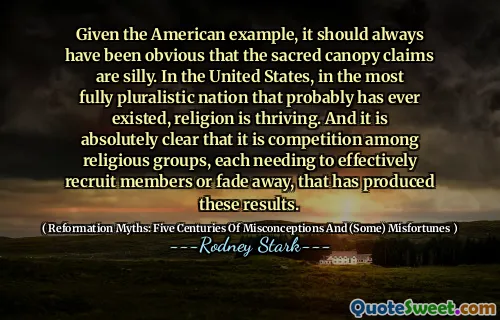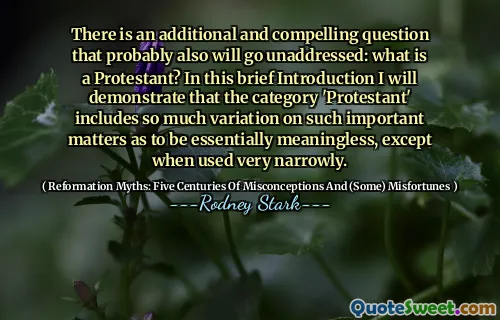
There is an additional and compelling question that probably also will go unaddressed: what is a Protestant? In this brief Introduction I will demonstrate that the category 'Protestant' includes so much variation on such important matters as to be essentially meaningless, except when used very narrowly.
This quote raises a critical point about the complexity and diversity within the label 'Protestant.' It challenges the tendency to categorize a vast array of denominations, beliefs, and practices under a single umbrella term. The author's assertion that 'Protestant' is so varied that it becomes nearly meaningless unless confined narrowly causes us to reflect on the danger of oversimplification in religious classification. It highlights that within Protestantism alone, there exists a spectrum of theological approaches, cultural differences, and historical developments, making the term a broad generalization. Recognizing this diversity is essential for appreciating the richness of religious traditions and avoiding reductionist narratives that lump together distinct groups. This perspective also emphasizes that identity and doctrine can shift significantly over time and geography, which is vital when discussing religious history or contemporary faith communities. Furthermore, understanding the heterogeneity within Protestantism encourages a more nuanced conversation about individual and collective beliefs. It reminds us that labels are often used for convenience but do not capture the deep intricacies of personal faith and institutional identity. The quote prompts scholars and believers alike to question the validity of broad generalizations and encourages a more sophisticated approach when analyzing religious phenomena—acknowledging that categories like 'Protestant' serve as useful but limited tools for understanding the complex mosaic of belief systems that have evolved over centuries.







